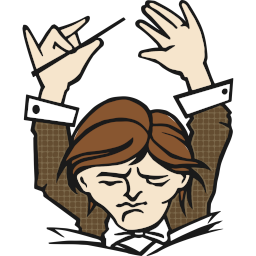My first reaction was that this excerpt reminds me of a piece I wrote two years ago called “The Airbnb-ification of the arts”, about how artists looking to make a career out of art are forced to cater to an algorithm that favors comfortable predictability over depth or uniqueness. My essay was heavily inspired by Kyle Chayka’s famous 2016 essay “Welcome to Airspace”.
Jokes on me for not reading the byline because it turns out Kyle wrote the book this excerpt is from! lol good for him. Looking forward to reading it.
I’m curious to know if he has a presence on Mastodon or any other Social Web apps, he’s a really great writer I’d like to follow.
i really miss the feel of early-mid-90s coffee shops. cozy, comfy, neighborhood coffeshops. like your local bar, but for the morning/afternoons. local coffee, local foodstuffs, and locals. it was a hangout spot and often had open internet workstations for that sort of stuff (obviously long before wifi and juuuust about when broadband was becoming commercially available). these were chill spaces for work, hanging out, meeting up, or just grabbing a quick cup of coffee and a biscotti.
fuck you Starsucks for killing these wonderful places.
“The franchise and the virus work on the same principle, what thrives in one place will thrive in another.” - Neal Stephenson
anodyne clones of uncomfortable spaces designed to pump out profits and burnt, sugar-bombed coffee drinks?
It’s all in the 3 ring binder.
It’s not just coffee shops. It’s hotel rooms and restaurants and homes. Hell, even our cars only come in two shapes now: Egg and Box. And three colors: White, gray, or black
It’s called fashion. Give it a decade, something else will become fashion.
Isn’t that two more colours than Henry Ford gave you! Sheesh! Ungrateful much!
This is part of the reason I love driving a (BMW) Mini. It’s not the best car in the world, but it looks different to all the other cars. And drives like a go kart.
One of the most obvious signs of the arrival of Idiocracy times was the 21st Century truck designs that all have a square, flat front end like a massive brick wall. As if no engineer who worked on the design of those has ever heard of wind resistance and fuel efficiency.
How bleak. A couple proprietary algorithms driving millions of business decisions across the globe, everyday.
Before algorithms, it was just whoever was considered the best consultant. I don’t really see much difference here between using humans to look at data and figure out what things may have an effect at bringing in customers or otherwise increasing profits and a machine doing the same thing other than the machine doing it faster and better.
That’s just on the whole “everything is the same” front, though. It is bleak for the humans that are going to be replaced by the machine.
What’s different is the feedback loop and the globalization. Yes, it’s just capitalism, ie giving the people what they “want”, but it’s really not just the same as someone suggesting that customers like clean lines and plants.
The feedback loop is the most disturbing part, IMO. You have an algorithm deciding what gets popular, which means creatives hoping to be financially sustainable have to cater to it to some degree, which reinforces the algorithm and removes a little bit of uniqueness from society.
Creative people have always had to consider"what sells" to some degree if they want to make money from their effort, but we’ve gone beyond artists making “art with some degrees of marketability” into making products called “art” with little of the emotional/intellectual "challenge’ that comes with unique works.
Seems relevant … Ted Gioia’s article on “Signs you’re living in a world without a counter culture”: https://www.honest-broker.com/p/14-warning-signs-that-you-are-living
In general, it’s a very older-gen (boomer/x-gen) point to make at the moment, but it’s probably one of the nostalgic points worth taking seriously. I’m sure today there are certainly counter cultures. My bet is that compared to the past, they’re harder to find, generally more numerous and probably more nebulous and hard to pin down unless you’re “in them”, and, problematically, I’d imagine they tend to be “thinner” and more fragile … less “alternative world views” and more “particular vibe specific to a time and place”. Genuinely curious topic for me though.











